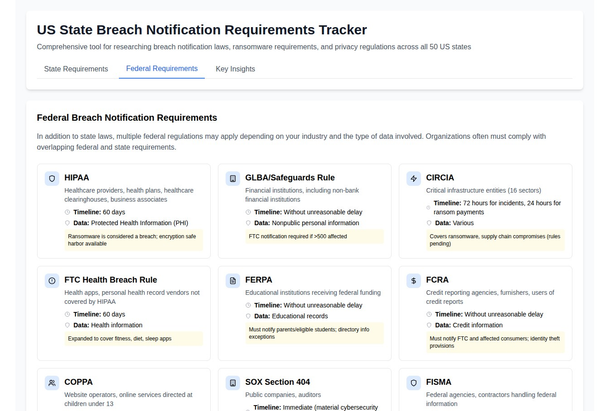Analyzing the Reforming Intelligence and Securing America Act (RISAA): Balancing Surveillance and Civil Liberties

The Reforming Intelligence and Securing America Act (RISAA) has sparked a significant debate in the sphere of national security and civil liberties, marking another chapter in the ongoing evolution of the Foreign Intelligence Surveillance Act (FISA), specifically Section 702. This section authorizes the National Security Agency (NSA) to collect the electronic communications of foreigners located outside the United States without a warrant. RISAA introduces changes to this framework, aiming to address privacy concerns while enhancing the government's surveillance capabilities.

Overview of Key Provisions in RISAA
Warrantless Queries of U.S. Person Information
One of the most contentious aspects of RISAA is its stance on warrantless queries. Unlike proposals like the Government Surveillance Reform Act (GSRA), which would require a warrant for U.S. person queries, RISAA allows the intelligence community to query Section 702 data about U.S. persons without a court order. The bill restricts the FBI from using these queries solely to gather evidence of criminal activity, except under certain conditions. This provision is intended to safeguard against abuses of surveillance data for criminal investigations without proper judicial oversight.
THERE WILL BE SENATE VOTES ON SECTION 702 TODAY. Please call this number (202-899-8938) ASAP to be connected to your Senators and urge them to vote “NO” on RISAA, which contains a “terrifying” provision (@RonWyden) that will force U.S. businesses to serve as NSA spies. 1/9
— Elizabeth Goitein (@LizaGoitein) April 18, 2024

Expansion of Entities that Can Assist Surveillance
RISAA expands the range of entities that could be compelled to assist in Section 702 surveillance. This could potentially include commercial landlords and other private entities, transforming them into extensions of government surveillance apparatus. Critics argue that this expansion could infringe on civil liberties and erode public trust in both government and private institutions.
Under the old Section 702, ordinary Americans could be spied on. Under the new version, they could be forced to spy.
— Freedom of the Press (@FreedomofPress) April 17, 2024
Hard to believe, but true.@SethAStern, @johncusack write in @Suntimes:https://t.co/xf7RuMoSAD
Lack of Robust Reforms
Despite introducing some reforms, critics argue that RISAA does not go far enough to rein in surveillance powers. It has been compared unfavorably to more reformative proposals, being seen as a continuation of the status quo that prioritizes surveillance expansion over significant reforms. Advocacy groups like the Electronic Privacy Information Center (EPIC) have called for stricter measures, including mandatory warrants for backdoor searches and the closure of the "data broker loophole."

Data-Driven Analysis of RISAA's Implications
A review of historical data from sources such as the Brennan Center shows that Section 702 has been a critical tool in counterterrorism and foreign intelligence operations. However, data also reveal concerns over privacy violations and the incidental collection of U.S. persons' data without proper safeguards.
- Effectiveness vs. Privacy: Analysis indicates that while Section 702 surveillance has played a role in disrupting terror plots, the lack of robust safeguards raises serious privacy concerns. The expansion of entities able to assist in surveillance under RISAA could further blur the lines between government and private sector roles in intelligence gathering.
- Judicial Oversight: Data from legal analyses suggest that increased judicial oversight, such as that proposed in the GSRA, could mitigate potential abuses of surveillance powers while still maintaining the operational effectiveness of national security efforts.
- Public Perception and Trust: Surveys and studies indicate a delicate balance between security and privacy is crucial for maintaining public trust. Expansions in surveillance powers, like those in RISAA, risk eroding trust if not coupled with significant transparency and accountability measures.

Warrantless Queries of U.S. Person Information
RISAA does not require the intelligence community to obtain a court order before querying Section 702 data for information about U.S. persons (Americans). Instead, it prohibits the FBI from conducting U.S. person queries "that are solely designed to find and extract evidence of criminal activity," with some exceptions.3 This is less restrictive than bills like the Government Surveillance Reform Act (GSRA), which would generally require a warrant for U.S. person queries.4
Expansion of Entities that Can Assist Surveillance
A concerning provision in RISAA is that it "dramatically expands the universe of entities that can be compelled to assist the government in conducting Section 702 surveillance."1 This could allow the government to use commercial landlords and other private entities as de facto surveillance agents, which critics argue poses a serious threat to civil liberties and democracy.1
Lack of Robust Reforms
While RISAA includes some reforms to Section 702, such as prohibiting certain FBI queries, critics argue that the bill "strongly resembles the House Permanent Select Committee on Intelligence (HPSCI) bill, which focuses more on expanding surveillance than reining it in."2 Groups like EPIC have called for more robust reforms, such as a warrant requirement for backdoor searches and closing the "data broker loophole."2
Conclusion
RISAA represents a pivotal moment in the ongoing debate over surveillance and privacy in the United States. While it introduces certain reforms, the act’s provisions for expanding surveillance capabilities and the conditions under which warrantless queries are permitted reflect a cautious approach to altering the status quo. For RISAA to effectively balance national security needs with civil liberties, it will require careful consideration of data-driven insights and public sentiment, ensuring that reforms provide robust protections without compromising the effectiveness of intelligence operations. As this debate continues, the need for a transparent, accountable, and privacy-respecting surveillance framework becomes ever more apparent.







